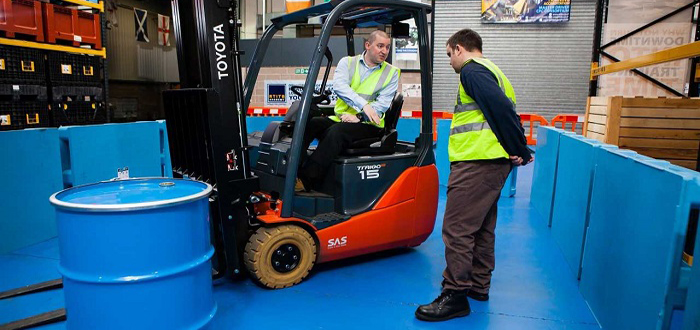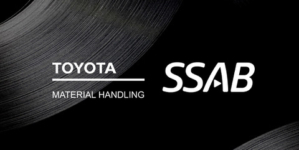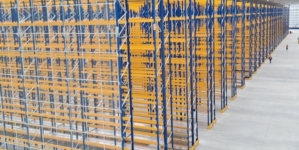-
Nutrivend selects Forterro’s Orderwise to support online expansion and streamline operations - April 11, 2025
-
ARROWXL LAUNCHES AMBITIOUS ZERO WASTE ROADMAP - April 8, 2025
-
THE BCMPA’S NEW CAMPAIGN DRIVES OUTSOURCING SUCCESS IN Q1 - April 7, 2025
-
BLACKOUT TECHNOLOGIES TARGETS TELEMATICS-INTEGRATED MOBILE DEVICE BLOCKING TO COMBAT SMARTPHONE DISTRACTION - April 1, 2025
-
Sparck Technologies awarded Royal designation - March 27, 2025
-
OpenADR Alliance announces first OpenADR 3.0 certified products with EVoke Systems, E.ON Energy and Universal Devices - March 25, 2025
-
Growing fulfilment and contract packer appoints new Managing Director - March 25, 2025
-
When is it time to invest in a WMS? Understanding the key trigger points - March 25, 2025
-
eCapital helps Vantage Recruitment on its journey to financial success - March 24, 2025
-
Hugo Beck Celebrates 70 Years of Packaging Innovation with Open House Events - March 20, 2025
Agency workers at risk due to lack of lift truck training, warns RTITB.
Workplace accidents, injuries and fatalities are frequently occurring as employers fail to check the qualifications and training credentials of agency staff working in lift truck operations, warns RTITB.
“All too often lift truck incidents hit the headlines,” says Laura Nelson, Managing Director for RTITB, the preferred regulatory body for workplace transport training. “Recently we have seen several cases where agency workers or temporary employees have been involved in accidents, many of which could have potentially been avoided if employers were more diligent about training.”
Figures from Health and Safety Executive (HSE) show that half of fatal accidents in the workplace happen during a worker’s first ten days on site, with half of these occurring on their very first day. New starters, whether they are agency workers or expected to be on-site for only a short period of time, are vulnerable to greater risk due to a lack of experience and familiarity. According to the HSE, a reluctance to raise concerns, or a lack of knowledge around how to do so, can also pose a problem.
“Whether an operator is on site for one day as a temporary employee or longer as a permanent team member, employers must make sure that they undergo suitable and sufficient specific and familiarisation training for the machine type they are required to operate and have the evidence to prove it,” Laura continues, explaining that this is important both for safety, and for legal compliance.
“It’s also important to assess the practical skill level of new starters and monitor their performance closely – not all MHE training is created equal so remedial training might be needed to fill knowledge gaps and correct bad habits,” Laura says. “This is where correct management and supervision plays an extremely important role”
The RTITB course, Managing & Supervising Material Handling Equipment (MHE) Operations, enables managers and supervisors to identify their responsibilities within MHE operations, as well as take important steps to minimise risk in the workplace.
The RTITB training course, which supports compliance with legislation, covers walking the floor, knowledge of regulations, manager and supervisor responsibilities, operator training, operational safety and putting theory into practice in the workplace, as well as the next steps to be taken if needed. The course content combines to equip supervisors and managers with the skills needed to identify and address any risks relating to MHE operators, whether short-term agency staff or permanent employees.
At the end of the course, an assessment will take place where candidates are required to complete a theory test and a video-based hazard perception test successfully to pass and obtain an RTITB accredited certificate.
“To comply with legislation such as PUWER, not only must employers make sure that MHE operators are correctly trained, but also that managers and supervisors have received adequate training for the purposes of health and safety,” says Laura.
For more information on delivering RTITB accredited training courses for MHE operators, managers or supervisors in your business, call the expert RTITB team on 01952 520207 or visit www.rtitb.co.uk.
































